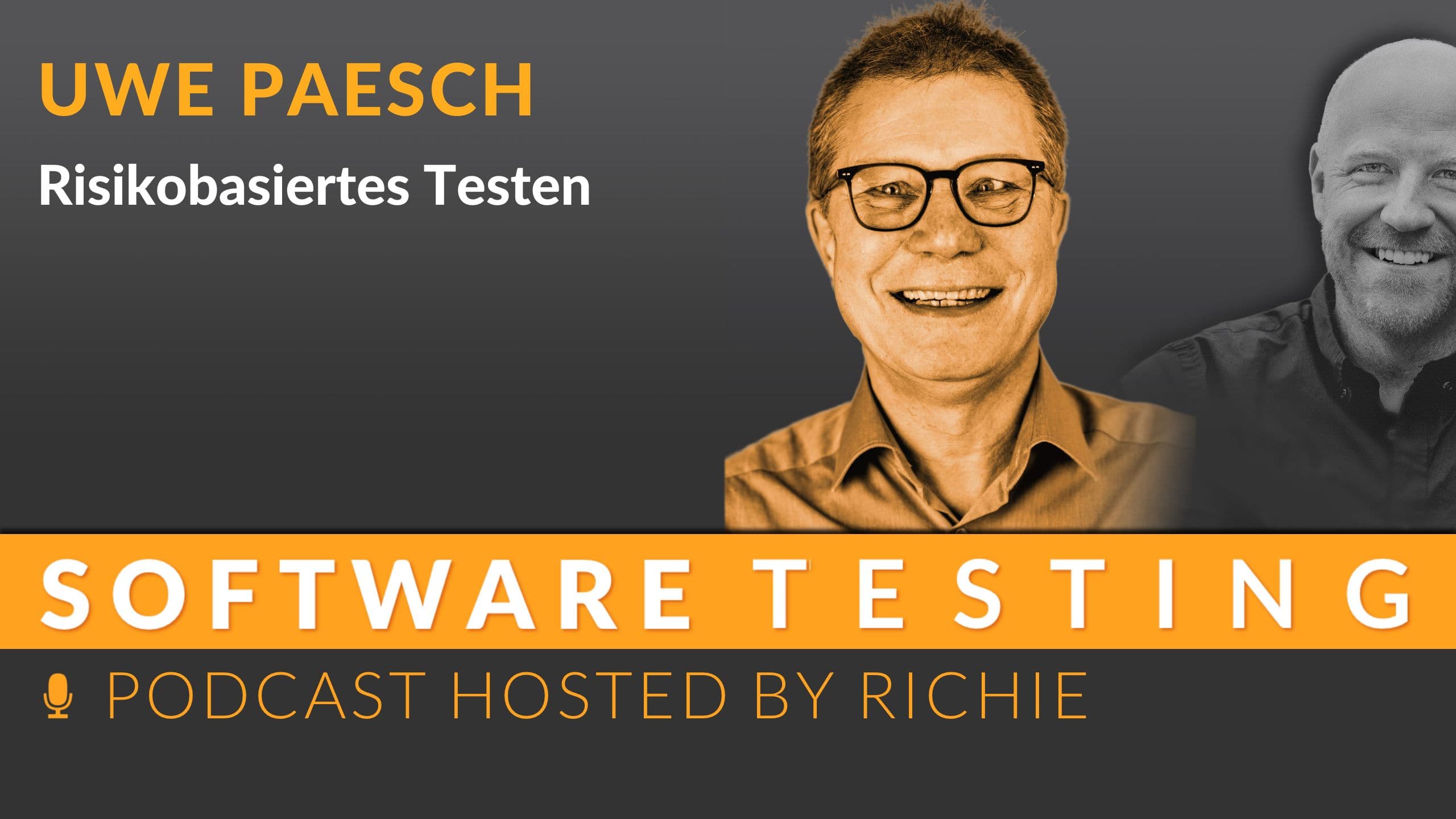Software Test Leadership
Successful leadership in software testing requires clear models and a strong quality culture. The ACT2LEAD model offers an approach for establishing...

World Quality Day provides an opportunity to take a look at the development of software quality and the changes in software testing over the last 20 years. Whereas in the past, testing often took place in isolation and under simple conditions, today quality is at the center of software development. The introduction of agile methods has accelerated this change, as they demand continuous improvements in quality. An exciting outlook shows that artificial intelligence in particular could greatly shape and expand testing in the future. Today is a good time to recognize the importance of quality throughout the development process.
In this episode, we celebrate World Quality Day! I share my thoughts on the evolution of software quality and how testing has changed over the last 20 years. We used to test in dark rooms, today quality is at the center of software development. Agility has helped us to constantly improve quality. I also talk about the future of quality, especially in relation to AI and its impact on testing. Your opinions and ideas about quality and the podcast are important to me, so share them. Celebrate quality and remember how important it is to us all!
“Agility means quality. If I don’t pay attention to quality, everything will blow up in my face after the third sprint.” - Richard Seidl
Richie is an expert in software quality and agility and a passionate optimist about the future. As a consultant, coach and mentor, he supports companies on their way to more quality in software. For him, one thing is clear: if you want to create excellent software today, you need to think about the development process holistically: people, context, methods and tools - a mindset for developing potential and innovation only emerges when everything works together.
World Quality Day has been celebrated since 2008 and has now been extended to an entire week - World Quality Week. This period offers an ideal opportunity to bring the topic of quality to the fore and highlight the many facets of quality management.
Feedback plays a central role in the continuous improvement of products, services and processes. Particularly in the field of software testing, valuable feedback from users, colleagues and the community provides crucial information on how well current measures are working and where there is potential for improvement. Direct feedback from the field not only supports the improvement of specific content, but also strengthens the relevance and topicality of thematic focuses in conferences and discussions within the industry.
Testing has undergone a fundamental change in recent years. Whereas in the past testing was often only carried out at the end of development, today testing is characterized by agile methods such as Scrum and Kanban. In these agile frameworks, quality assurance is integrated into the entire development process and testing is iterative and continuous. Constant regression tests and the continuous provision of high-quality results set new standards. This shift from linear processes to agile, flexible approaches represents significant progress and contributes significantly to higher product quality.
In modern agile teams, quality is no longer just the responsibility of the testers. Responsibility for quality is borne collectively and affects all roles - from the product owner to the developers and testers. This holistic approach ensures that quality is considered early on in the development process. Automated processes and continuous integration pipelines facilitate quality management and promote a culture in which the topic of quality is present on a daily basis and each individual actively contributes to it.
An exciting future topic in software testing is the use of artificial intelligence (AI). Although AI offers numerous possibilities for optimizing test scenarios and processes, it is often overrated and should not be seen as a panacea. Instead, it makes sense to control the use of AI in a targeted manner and to utilize its advantages, for example in the automated analysis of requirements or the generation of test ideas. However, in order to really exploit the potential of AI, it is necessary to develop a clear understanding of the underlying quality criteria and requirements.
With the emergence of new technologies and increasing requirements, the traditional concept of quality is facing a challenge. Especially in the context of AI, conventional quality criteria such as functionality and efficiency need to be rethought and expanded. Important factors such as usability and security are becoming increasingly important. In order to develop sustainable quality standards, it will be crucial to continuously question these criteria and redefine the concept of “quality”.
Overall, World Quality Day shows how relevant and multifaceted the topic of quality is for modern software development. Comprehensive, cross-team quality awareness and the willingness to adapt to new challenges create the basis for future-oriented quality assurance.
Regression tests are crucial for quality as they ensure that new changes do not affect existing functions. Regular testing allows teams to detect and fix bugs early, which increases the stability of the software. They also help to promote the reusability of tests and improve test coverage. This keeps the software consistent and error-free throughout the development process, resulting in higher user satisfaction.
Artificial intelligence improves software quality and agility in the testing process by making automated tests more efficient. It enables large amounts of data to be analyzed in order to identify and predict errors more quickly. AI also optimizes test coverage and reduces manual testing, allowing developers to react more quickly to changes. Through continuous learning, AI adapts to new requirements, which increases the speed of innovation and improves the overall quality of the software. AI thus makes a decisive contribution to high quality in testing.
Feedback is crucial for quality as it promotes continuous improvement. Regular feedback provides teams with immediate information about shortcomings and opportunities. This enables quick adjustments and promotes collaboration. It also increases user satisfaction as the feedback flows directly into product development. Ultimately, the iterative nature of feedback increases transparency and helps to identify and correct errors at an early stage, which improves the overall quality of the results.
Agile methods improve the quality of the testing process through continuous feedback and close collaboration. Regular iterations enable quick adjustments and early error detection. Teams integrate tests into the development cycle, which promotes quality agility and increases productivity. Automated tests and regular reviews ensure that requirements are constantly checked and fulfilled. This increases the overall quality of the product and improves stakeholder satisfaction.
Artificial intelligence improves quality by performing automated tests faster and more precisely. It identifies errors and inconsistencies in real time, which shortens change cycles. With intelligent algorithms, tests can be designed adaptively to adapt to new requirements. AI also analyzes test results more efficiently, enabling teams to make more informed decisions. These benefits lead to increased test coverage and faster software delivery, which optimizes overall development time.
Integrating quality into agile processes can be challenging, as the focus is often on fast delivery. This can lead to quality standards being neglected. In addition, close teamwork requires clear communication and shared responsibility for quality, which is not always the case. Lack of testing and unclear acceptance criteria can affect quality. Finally, it can be difficult to integrate continuous feedback loops into a rapid development cycle, which poses further risks.
Agile testing methods offer higher quality as they enable continuous feedback and rapid adaptation. Compared to traditional approaches, they promote early error detection, which speeds up development and reduces costs. Close collaboration within the team improves understanding of requirements, which makes agile testing particularly efficient. In addition, regular test cycles enable a rapid response to changes so that the software always meets current needs.
Quality in agile projects is ensured through continuous feedback and iterative development. Close collaboration within the team enables regular adjustments based on user feedback. Automated tests and code reviews promote high software quality. Daily stand-ups and retrospectives help to identify problems at an early stage and improve quality. The focus is also on customer interactions to ensure that the delivered products meet their needs.
Quality in agile projects can be effectively measured and ensured through regular feedback loops and continuous integration. Important methods include retrospectives, in which the team reflects on processes and results, and test automation, which ensures that new features do not affect existing functions. Quality is also supported by clear definitions of acceptance criteria that precisely define the expectations of the end product. This ensures that product quality is maintained throughout the development process, even when requirements change rapidly.
Agile testing promotes quality in agile projects by enabling continuous feedback and early error detection. Close collaboration within the team increases quality agility, as testers are involved in the development process from the very beginning. Regular tests and adjustments help to quickly check requirements and ensure that the product meets expectations. This continuously improves software quality and minimizes the risk of undesirable developments.

Successful leadership in software testing requires clear models and a strong quality culture. The ACT2LEAD model offers an approach for establishing...

The further development of software testing is increasingly characterized by artificial intelligence (AI). Two key areas can be distinguished: the...

Risk-based testing can help to significantly improve test coverage in software projects and minimize potential risks in testing, especially in the...